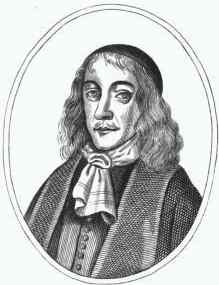John Barkstead facts for kids
John Barkstead (died 1662) was an English soldier and important leader during the time of the English Civil War. He was also one of the judges who decided the fate of King Charles I. This act is known as being a "regicide."
Barkstead started as a goldsmith in London. He became a captain in the army that supported Parliament. Later, he became the governor of Reading in 1645. He also led a group of soldiers during the siege of Colchester. In 1648, he was one of the judges for King Charles I. He then became governor of Yarmouth in 1649. By 1652, he was made the Lieutenant of the Tower of London. He served as a Member of Parliament (MP) for Colchester in 1654 and for Middlesex in 1656. He was knighted in 1656. After the king's son returned to power in 1660, Barkstead escaped to another country. However, he was arrested in 1662, brought back to England, and executed.
Contents
John Barkstead's Early Life and Military Role
John Barkstead's exact birth date is not known. He worked as a goldsmith in London. People sometimes made fun of him for selling small items like thimbles. But he cared deeply about the freedom of the nation. So, he joined the army early on. He became a captain in a foot soldier company. This group was part of Colonel Venn's regiment.
Becoming a Governor and Commander
On August 12, 1645, the House of Commons chose him. He was made the governor of Reading. The Lords agreed to this on December 10. During the Second English Civil War, he led his own regiment. They fought in the important siege of Colchester.
Role in the King's Trial
In December 1648, Barkstead was chosen as one of the judges. These judges were to decide the future of King Charles I. At his own execution later, Barkstead spoke about the king's trial. He said he did not plan the trial. He was far away when it started. He only knew about it when he saw his name on a list. He stated that he acted without any bad feelings. He attended almost every meeting during the king's trial.
Lieutenant of the Tower of London
In 1649, he served as the governor of Yarmouth. By April 11, 1650, his regiment was chosen. They were to guard the Parliament and the city of London. On August 12, 1652, he received another important job. He was made the Lieutenant of the Tower of London. This was a very important position.
Oliver Cromwell, a powerful leader at the time, praised Barkstead. Cromwell said Barkstead was very watchful. He knew about any plans against the government. Cromwell mentioned that Barkstead would report any unusual activity. He would tell them if many people were gathering. He would also report if people seemed to have strong feelings. Being Lieutenant of the Tower was a well-paying job. It was said he earned about two thousand pounds a year.
Political Career and Later Life
In 1654, Barkstead became a Member of Parliament (MP). He represented the area of Colchester. In the 1656 Parliament, he represented Middlesex. In November 1655, he was given another role. He became a major-general for Middlesex county. He also helped Sir Philip Skippon in leading London.
His hard work was recognized. He was knighted on January 19, 1656. He was also appointed as the steward of Cromwell's household.
Escape and Execution
When the king's son, Charles II, returned to power in 1660, Barkstead was in danger. He was one of seven people who faced severe punishment. They were to lose their lives and property. However, Barkstead managed to escape to Germany. He even became a citizen of Hanau.
In 1662, he took a risk. He went to Holland to visit some friends. Sir George Downing, who worked for the king, found out. Downing got a warrant to arrest him. Barkstead was seized in his home. Two other men, John Okey and Miles Corbet, were also arrested with him. The three prisoners were sent to England right away. They had already been declared outlaws. So, their trial was only about proving who they were.
Barkstead and his friends were executed on April 19, 1662. He showed great bravery at his execution. He thanked God for being loyal to the leaders he served. He also spoke to the people watching. He praised the "congregational way" of worship. He said he had found much comfort in it.
 | Leon Lynch |
 | Milton P. Webster |
 | Ferdinand Smith |


